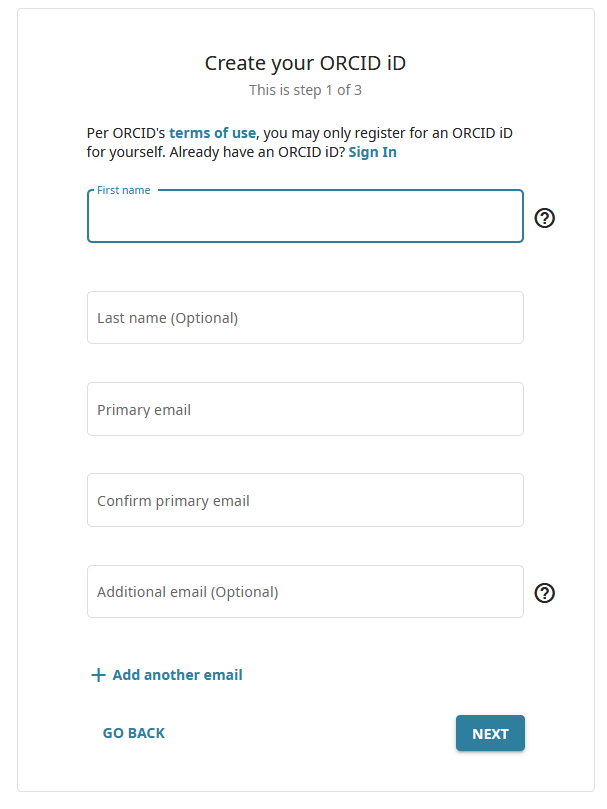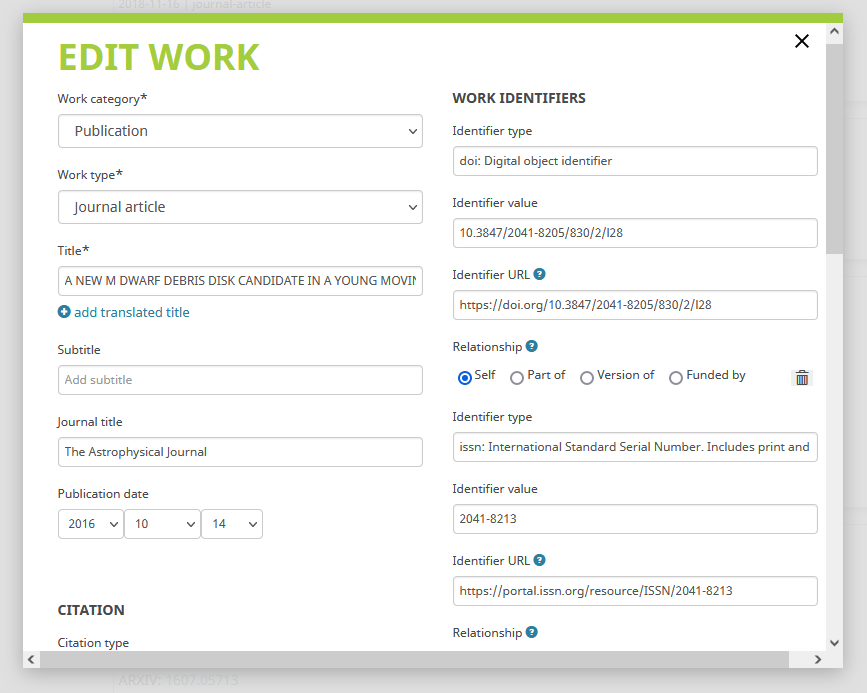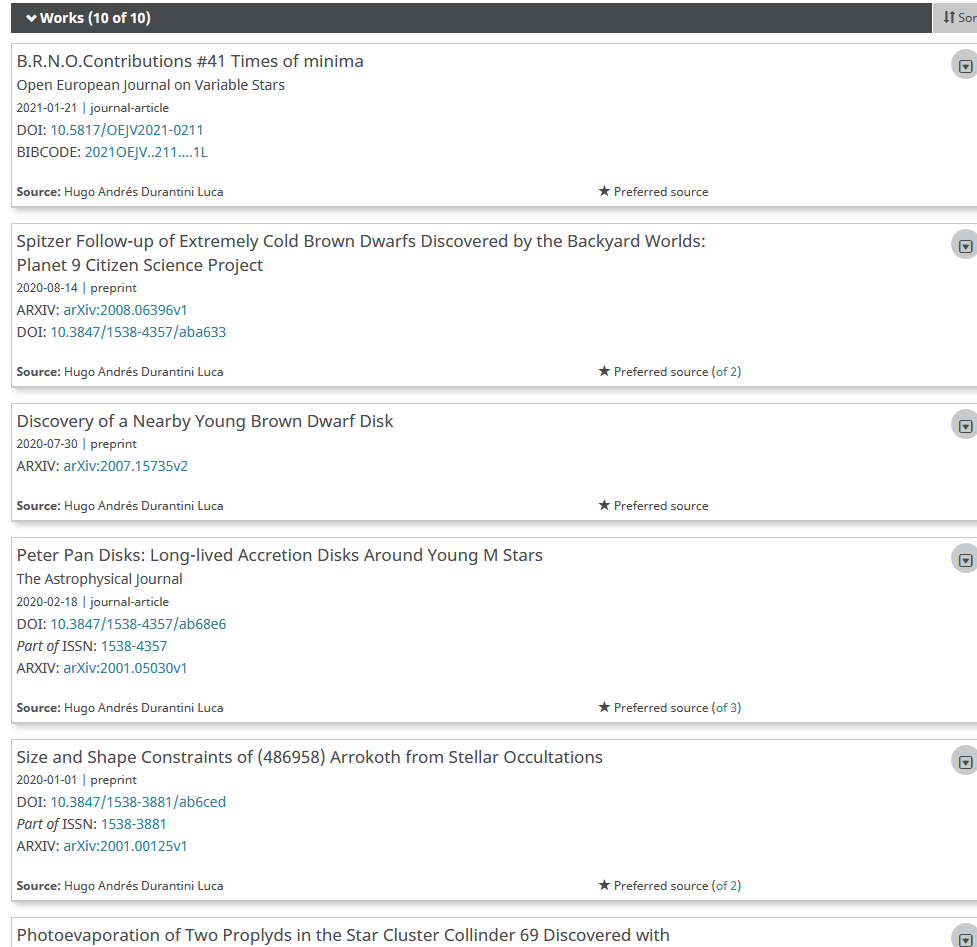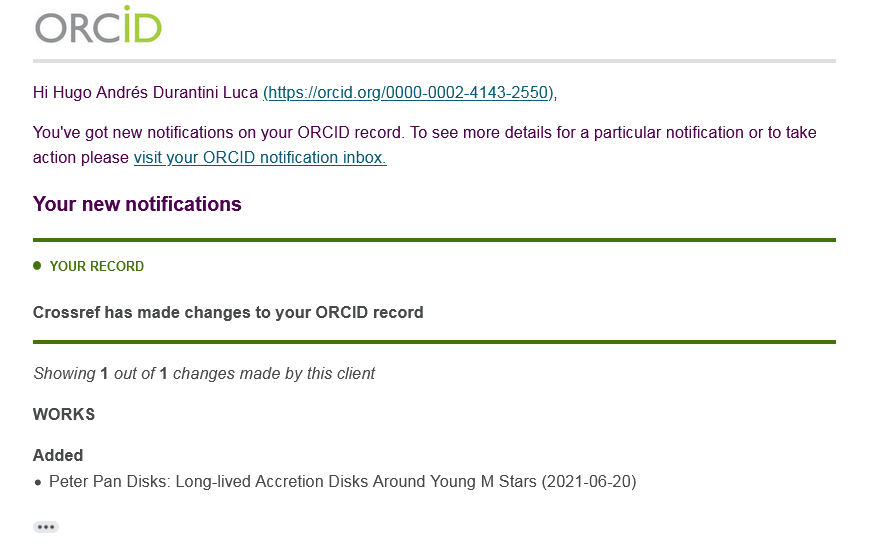
In citizen science you are going to have a lot of opportunities to become co-author of several papers, what are normally published in a number of scientific journals, portals and distributions systems, often in several of them at the same time so keeping track of them can get tricky after some time.
Additionally, over time after the paper gets disseminated, the papers can appear in more places, each with their own citations and reference systems.
If you are a student, having a precise record of the papers were you are appearing can be quite important for your curriculum vitae, if you are studying a career in the same field you are contributing as a citizen scientist.
So, how we can keep track of our papers with ORCID and what it is?
First, ORCID, stands for Open Researcher and Contributor ID, it’s a service created with the idea to get all who participate in research uniquely identified and connected to their contributions across disciplines, borders, and time. Enables the possibilities of creating transparent and trustworthy connections between researchers, their contributions… and its free! You can check the people and organizations involved in their page.
Creating the account is pretty straightforward, with several options, from the classic registration with any email to using Google or Facebook. I will recommend using your main email for this.

The amount of personal data about education and such that is going to appear depends on you, you can load as much as you want and make visible as much as you want. The visibility options goes from pubic, to trusted people only to private, so you can have a good control of what is public or not.
Loading your papers is also rather straightforward, using the "Add Work" option, but the page can be a bit overwhelming at first, so let´s see an example.

You can add them manually or using the identifier that different services provide, like ADS (astrophysics data system) ArXiv.org from Cornel University, The Astrophysical Journal and in some cases ISSN (International Standard Serial Number). In this example I´m using the following paper: “A NEW M DWARF DEBRIS DISK CANDIDATE IN A YOUNG MOVING GROUP DISCOVERED WITH DISK DETECTIVE”. Each identifier is in the link leading to the paper and are easy to identify once you know them. For example:

Link for ArXiv.org: https://arxiv.org/abs/1610.05293v1 (the identifier is in the last part, 1610.05293v1)
The Astrophysical Journal: https://iopscience.iop.org/article/10.3847/0004-637X/830/2/84 (DOI Identifier: 10.3847/0004-637X/830/2/84)
ADS: https://ui.adsabs.harvard.edu/abs/2017AAS...22942001S/abstract (BIBCODE identifier, 2017AAS...22942001S, and yes the “…” are part of the identifier, is not an error)
ISSN: https://portal.issn.org/resource/ISSN/2041-8213 (Part of ISSN identifier, 2041-8213, also is called like that "part of ISSN" in the page)
Once you have set up your profile with the information you want to share and keep track of you can share your ORCID ID with everybody using the public version link, here is mine for example: https://orcid.org/0000-0002-4143-2550

Of course, you can edit them after adding to correct details or add additional identifiers! You can also get automated notifications, like the one below, in your email to aks your permission or letting you know that a change or addition is going to be made to some of the works you have in your profile, you can trust in these since I have not seen anything weird with this cases so far.

I should point out, you also need to share this profile with the researchers you are working with when a paper is about to get released so the link can be incorporate to your name on the paper and publication. In that way you can showcase your contributions to the community, which also helps the papers to get more diffusion
So get your ORCID profile now! Build you list of contributions to the science world, build up you CV, and is the closest thing to a Steam Profile Page to track your achievements you can get if additionally you are a gamer like me!
Good Luck and Happy Adventures with Science!
